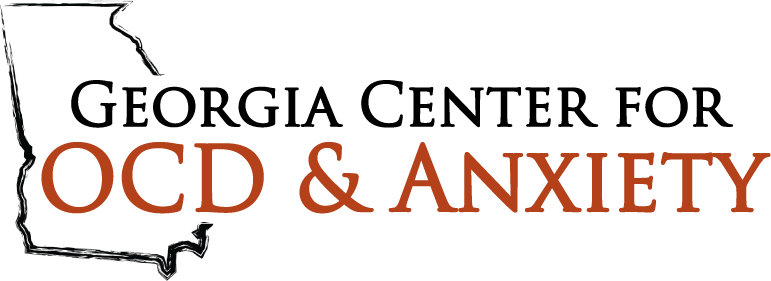On January 1st, if someone had predicted by springtime, our environment would be so dangerous I could not take my children to a movie, I would not have believed them. But, here we are living the stressful COVID-19 reality and wondering how long it will last.
This week, I left home to forage food for my family at a local market. Inside, the atmosphere was startling, foreign. Most everyone was silent and anonymous. Various forms of PPE (masks, eye protection and gloves) blocked the exchange of smiles or pleasantries. The vibe was cold, quiet and sterile, like a morgue with silent corpses wandering. I sensed others’ minds were whirring like mine, but no one spoke a word.
In the therapy room, clients are expressing severe worry and frustration wondering what specific precautions to take during this pandemic. This post addresses how be decisive and remain balanced in your decision-making but does not seek to tell anyone the specific precautions they should take.
Excessive anxiety causes us to overestimate the likelihood of a feared outcome and underestimate our ability to cope. In other words, we feel convinced our worst nightmare is probably about to happen and there may be nothing we can do to stop it. Who wouldn’t be terrified if they believed this?
These faulty cognitions, or thoughts, cause us to enter a state of “emotional reasoning” in which negative emotions, like fear, determine our reality. Then, our primal neuro-biological safety mechanism, the fight/flight/freeze response, is activated. Our ability to respond rationally wanes and we begin to react instinctively attempting to avoid or eliminate the perceived threat. This reaction is useful and possibly lifesaving if a threat is in fact imminent and tangible. However, when a threat is invisible or ambiguous, like a virus, a person may feel painfully uncertain as to how much precaution is truly needed. The overly anxious mind desperately seeks to eliminate this uncertainty attempting to achieve a sense of total control. The mindset becomes, “I’m not sure what to do, so I’ll do everything I possibly can to feel safe and not stop until I feel better.” These gripping “safety behaviors” can become superfluous crutches providing temporary relief, but often backfire in the long term. Here are some examples:
- The person with “contamination” OCD incessantly cleans until their hands are cracked and bleeding (ironically increasing COVID-19 vulnerability). And, they expect family members to react to the COVID-19 threat as urgently as they do leading to accusations and conflict.
- The person with “harm” OCD becomes agoraphobic overestimating the possibility they are an asymptomatic carrier. They feel convinced they will surely infect others if they leave home.
- The person with health anxiety constantly scans their body for COVID-19 symptoms. This excessive checking amplifies intensity of normal bodily discomfort causing it to feel like severe pain or a prominent symptom. The person becomes overwhelmed with panic, convinced they have contracted the virus.
- The normally motivated “perfectionist” student falls behind as they procrastinate wondering how to proceed since their plan for the semester has abruptly changed.
- The person with generalized anxiety feels COVID-19 fallout harbingers the end of the world as we know it.
This rambling roller coaster of safety behaviors is powerful and can get out of control. It yields diminishing returns by causing more life disruption and panic than actual safety. As the emotional vortex whirls, one’s sense of reasonable precaution is lost and they do not know where, when or how to stop their safety behaviors. In time, these compulsive methods of coping cause increasingly problematic interpersonal, family, career, academic, health, financial, decision making, mood, sleep and other problems.
If you are struggling to determine reasonable precaution for yourself, here are some guidelines that may be helpful:
- During a time you are feeling calm and grounded, identify specific safety measures you deem necessary based on your personal situation and physical health concerns. Stick with this plan and do not change it just because your fear level increases. Only allow for changes to your plan if fundamental circumstances change significantly.
- Be thoughtful in how you receive COVID-19 information. Refer only to your most trusted news sources for COVID-19 info such as the CDC, WHO or local health department for no more than 30 minutes per day.
- Do more, think less. Create a flexible, daily schedule to establish consistency and prevent you from just sitting around wishing the pandemic was over already. Resist the temptation of being overly rigid with your schedule. Accept beforehand sometimes life circumstances will cause the need to spontaneously alter your expectations.
- Establish a personalized self-care plan throughout the COVID-19 period including consistent physical activity, sleep schedule, social interaction, intellectual stimulation and meaningful tasks. This is especially important for students with a tendency to slide into “vampire hours” due to staying up late at night and sleeping in longer each day. There are many good links to help with this such as the International OCD Foundation’s Self Care during COVID-10.
- Be aware of misuse of substances. There’s nothing wrong with a socially distanced glass of wine with friends at the end of beautiful spring day. But, if you find yourself drinking earlier and earlier in the day or thinking “I really need a drink”, it could be an early warning sign of substance abuse.
- If your family members are driving you crazy due to being trapped in a house together for a month, try not to murder them. You will probably regret it later 😊. If it is available to you, get out and take a walk or go for a drive. A little space can go a long way.
- And remember to reach out for support when you need it. If these or other anxiety related issues are causing significant disruption in your life, give us a call to see how we can help.

